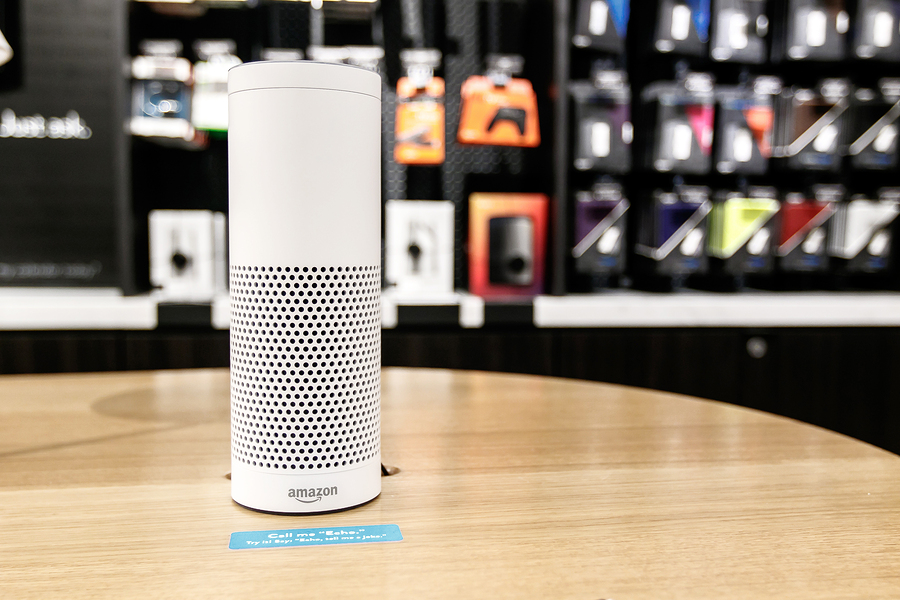
Alexa! How can I leverage voice search?
Chances are that you’ve used voice search before. Whether Siri, Alexa, Google Voice or Cortana answered your question on your phone or home device, all of these technologies fall into the emerging category of voice search. Personal assistant devices have gained major popularity over the last couple of years and “the Echo Dot was the best-selling product on all of Amazon in the 2018 holiday season” (TechCrunch).
Perhaps this rise in popularity is due to the advancement in technology, resulting in more accurate search results and “many explain the reason for voice technology’s growth is the improved rate at which voice commands are accurately captured” (Search Engine Land). In addition, the increased efficiency is due to humans’ capability to speak a whopping 3.75 times as many words per minute compared to type (Katherine Watier). Aside from convenience, voice search is readily accessible and is likely already a feature of your laptop and smart phone. Further surrounding a user are home devices, which have a very low barrier to entry costing only $49 for the most basic model (Google Home Mini and Amazon Echo Dot). The rise in popularity is likely due to a combination of reasons, and as the user base grows, smart marketers will need to keep up with the trend.
Put simply, at the end of the day voice search is search. While people have been trained since the late 1990’s to use succinct keywords to find results, that is changing.

Voice search tends to be more conversational and “41% say using their voice-activated speaker is like talking to a friend or another person” (Think with Google). When optimizing for search engine results in the past, the options were short-tail or long-tail keywords. To optimize for voice search engine results, keywords need to be thought of as long-tail plus. The “plus” refers to the conversational terms that accompany voice search informed by questions real people ask and how real people talk. As a starter, think of questions you get when customers call you on the phone to ask about your business (Search Engine Land). Consider formulating a robust FAQ section with answers listed in a conversational style for Alexa, OK Google, Cortana, and Siri to answer back with.
The other standout difference with voice search is that it skews local especially on mobile as “mobile voice-related searches are 3X more likely to be local-based than text” (Search Engine Watch). Think about the type of search someone would make on mobile. Perhaps they are in the process of travelling, getting ready for their day or looking for somewhere for dinner. About a fifth of voice searches are for local inquiries such as restaurants, shopping, directions, home services, pizza, weather, reviews, local event, and traffic (Search Engine Land). These are short, impulsive questions asked when someone needs information quickly and isn’t sitting down to research their options. They need an answer fast and even better if they don’t need to read it, but rather, have it told back to them.
Research suggests it takes 21 days, or three weeks, to form a habit (Brain Pickings). Like all behaviors, the behavior of using voice search is habit forming and “72% of people who own a voice-activated speaker say their devices are often used as part of their daily routine” (Think with Google). As people continue to become more comfortable with their voice search tools, usage will continue to rise. As marketers, that leaves us to wonder what is being done with all the data collected from voice search? How it can be leveraged? And when we can tap into it? That is a topic for another day. Until then, happy voice searching and site optimizing!

L A U R A R O O S E V E L T
Media Account Associate
Sources:
https://searchengineland.com/voice-search-explosion-will-change-local-search-251776
https://www.thinkwithgoogle.com/consumer-insights/voice-assistance-consumer-experience/
https://searchengineland.com/optimize-voice-search-273849
https://www.brainpickings.org/2014/01/02/how-long-it-takes-to-form-a-new-habit/
